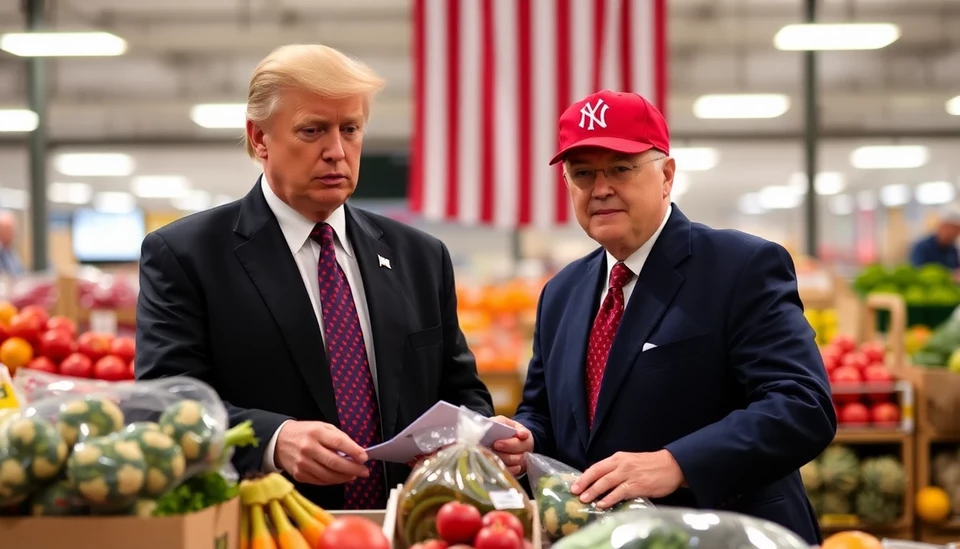
In a developing saga of global trade turmoil, recent moves by former President Donald Trump involving tariffs are stirring significant concerns in the agricultural sector. As the U.S. government reinstates certain tariffs on imports, a ripple effect is being felt across multiple countries, leading to retaliatory threats that could reshape international trading relationships.
The reinstatement of tariffs is set against a backdrop of increasing protectionist policies that prioritize domestic production over global supply chains. As the U.S. seeks to defend its agriculture from perceived unfair competition, nations across the globe are preparing to respond to these measures, which many analysts believe could escalate into broader trade conflicts.
Current reports indicate a variety of affected commodities, including staple goods and agricultural products, which are produced locally but attract tariffs due to international pricing pressures. These developments hit consumers hard, as they can lead to increased prices not only on foreign goods but also on local products that rely on global supply chains for ingredients and materials.
Analysts warn that ongoing tariff wars might derail the recovery of global food markets, which have been stabilizing following severe disruptions caused by the pandemic. A prolonged trade spat could lead to food shortages and increased inflation, further burdening consumers who are already navigating rising living costs.
Countries facing the brunt of these tariffs are contemplating their retaliation strategies. Nations that export large quantities of food to the United States, like Canada and Mexico, could respond with their own tariffs or restrictions. This potential for tit-for-tat trade measures is unsettling for export-dependent economies, leading to escalating tensions and uncertainty across the agricultural supply chain.
Experts emphasize that such a trade conflict could have severe repercussions not just for markets but also for diplomatic relations. The agriculture sector, often viewed as an arena of cooperation, is now becoming a focal point of nationalistic agendas that threaten the very fabric of international trade agreements.
In conclusion, as tensions simmer over Trump's reinstatement of tariffs, the agricultural landscape is poised for challenging times ahead. Stakeholders remain vigilant as they track developments and prepare for the potential fallout of a deeper trade war that could disrupt food systems around the globe.
#TrumpTariffs #GlobalTrade #AgriculturalSector #FoodPrices #InternationalRelations #TradeConflict #Economy #TariffWar
Author: Daniel Foster




